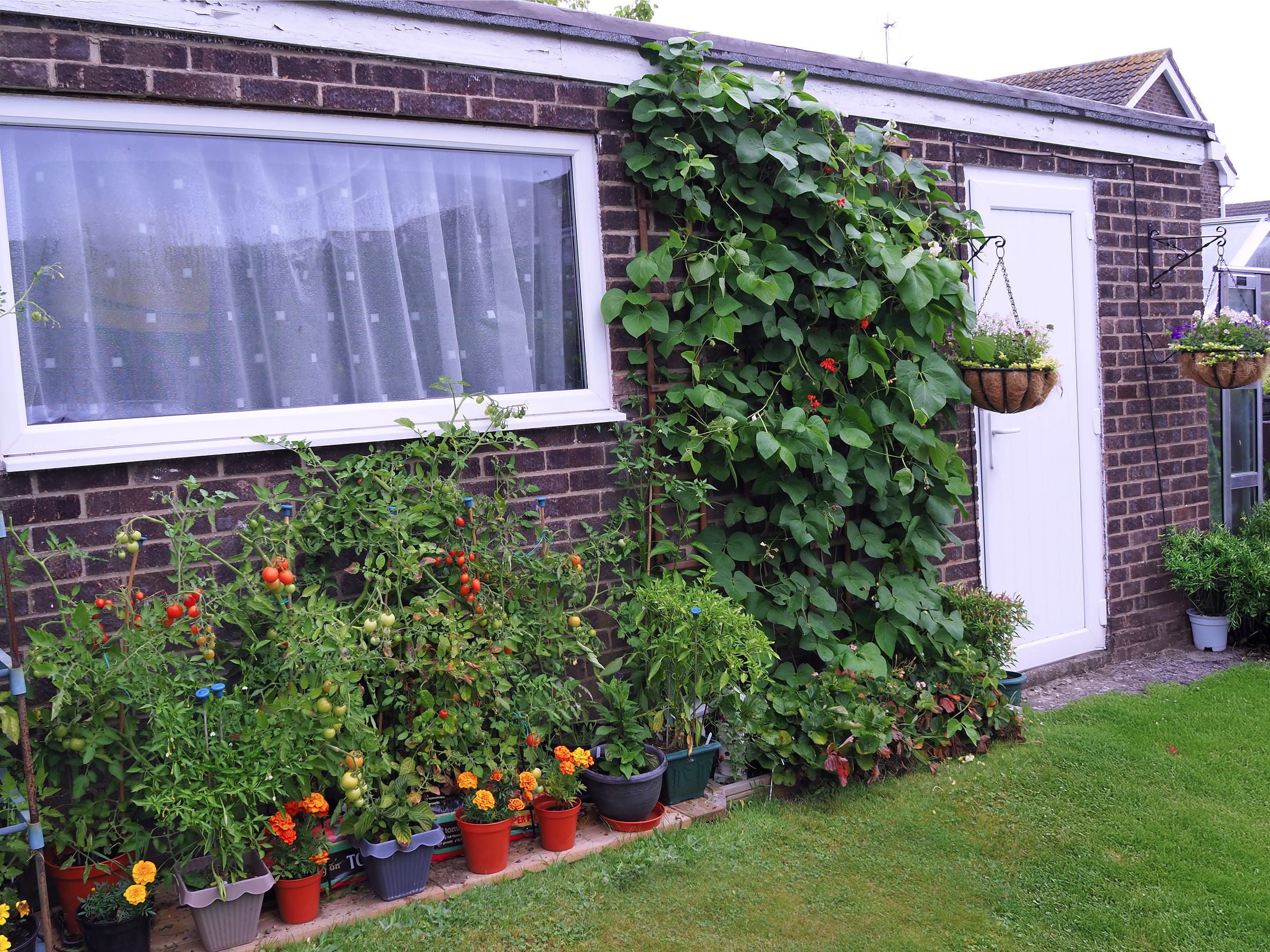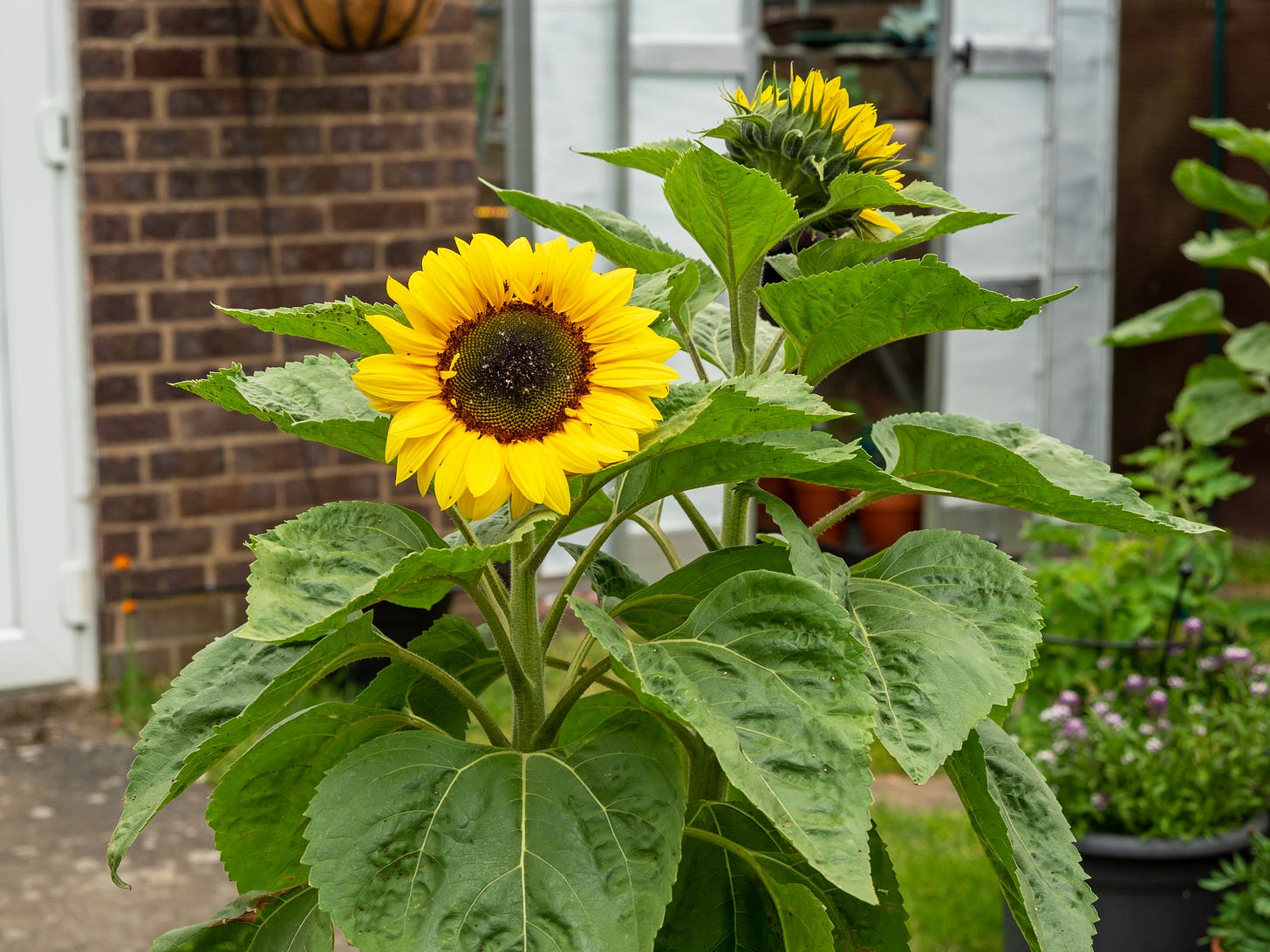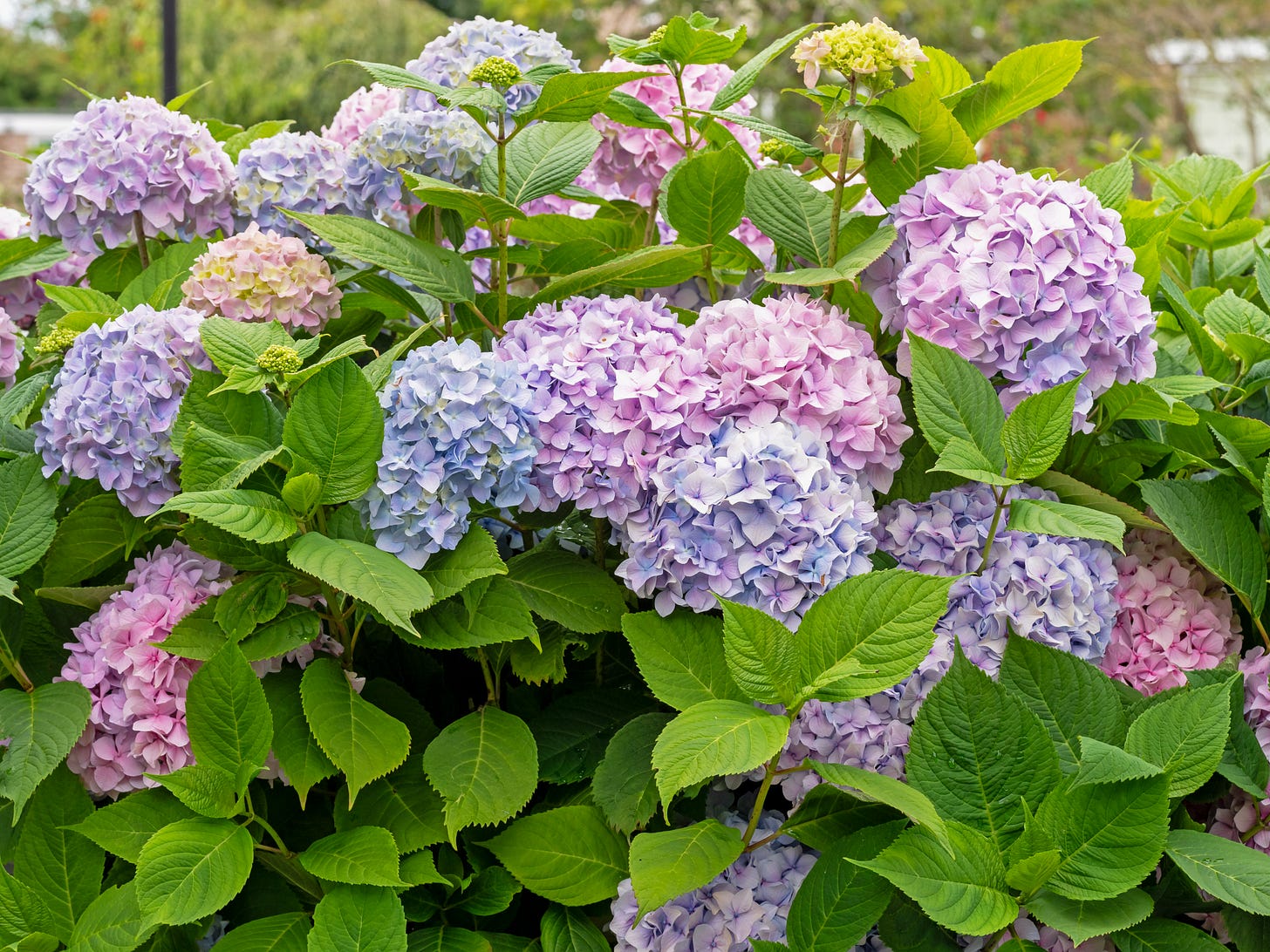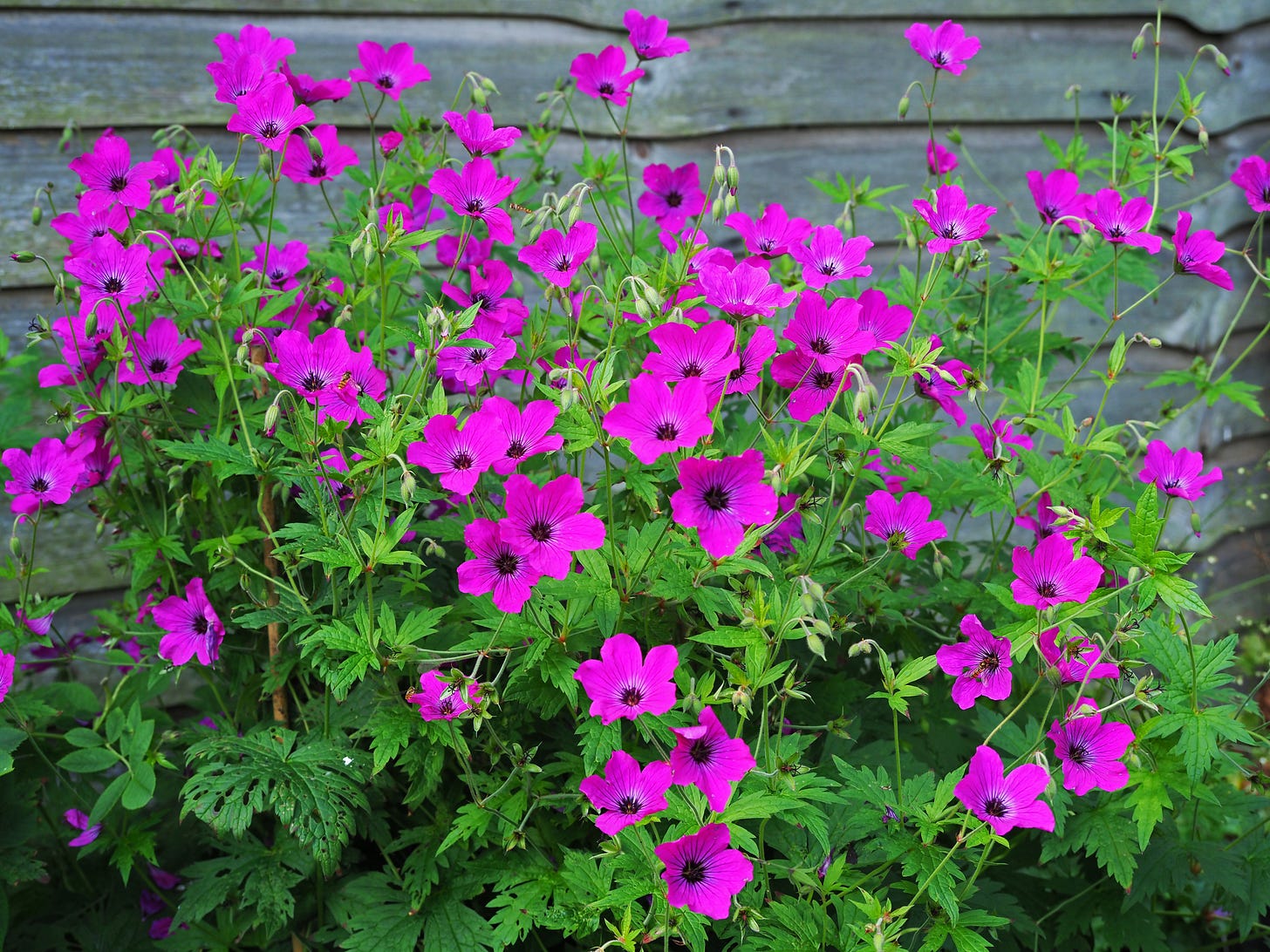Why Every Garden is Unique, and an Opportunity to Support Nature
And why you shouldn't rely too much on gardening advice
I had an interesting thought the other day. That there is nowhere else on earth exactly the same as my garden.
It then occurred to me that this is actually true of every garden - every one is a unique little ecosystem like nowhere else on earth.
To illustrate what I mean, imagine two identical houses on a new housing estate. They may originally have identical plots of land, but when the owners take possession and lay out their gardens, they will quickly become very different.
Paths, fences, walls, lawns, garden furniture, sheds, ponds, patios, water butts - all of these features and many more change the character of a garden. They influence how much sun and shade different areas of the garden receive, how much wind exposure, how much rainfall and runoff.
And then of course there are the plants. The variety of plant species that grow in our gardens, deliberately planted and otherwise, is enormous. No two gardens will have exactly the same species of plants, or combinations of plants, in exactly the same situation.
All of these factors influence the wildlife that visits and inhabits our gardens, welcome or not. Soil fauna, insects, spiders, slugs and snails, frogs, mice, mammals, birds - no two communities will be identical.
Here in the UK it is estimated that residential gardens account for just under 5% of the total land area. That doesn’t sound like a lot, but it adds up to around 1.8 million acres. Enough to make a significant difference to biodiversity.
Of course gardens are not natural habitats. We introduce plants from all over the world that would never naturally grow beside one another. Many of the plants in our gardens have been selectively bred for generations to produce brighter flowers, more fruit, faster growth, disease resistance…..
Some people like their gardens to be perfectly ordered and manicured, every leaf in its place. They may use artificial fertilizers and pesticides in attempts to keep nature strictly under control.
Others garden with nature in mind, preferring biodiversity to neatness and being more tolerant of species widely considered to be weeds or pests.
Some, like me, use their gardens to grow food. Nothing beats the satisfaction of preparing a meal with ingredients picked fresh from the garden just before you cook.
Others don’t want to bother with their gardens at all, and pave them over for parking spaces or just convenience. Or have plastic grass…..
And of course many live in apartment blocks and don’t have gardens, though balconies, window boxes and rooftop gardens can be used to great effect.
Whatever our interest in gardening, or the type of garden we possess or aspire to, this uniqueness has interesting implications.
We shouldn’t rely too much on gardening advice
Of course, we can learn so much from reading other people’s gardening posts, blogs, magazine articles and books. I know I have, and still do.
Many gardening techniques are generally applicable, and can be used or adapted by any gardener anywhere.
But if you follow advice and find that it doesn’t work, don’t be disheartened. The person writing the advice may have a garden which receives more sun than yours. Or has a different type of soil. Or isn’t prone to the same garden pests.
They may be growing plants from seed they have been collecting for many years, so the plants are well adapted to their specific location.
Ultimately their writing will be based on their experience of their own garden, or the gardens they have worked in. And they will be different to yours in countless ways.
I often read about plants that are supposed to be ridiculously easy to grow, but I struggle with them. Examples are spinach and rocket. The former nearly always goes straight to seed when I grow it, and the latter seems to attract every aphid for miles. But I have great success with many other plants, some of which are considered to be difficult.
Finding out what works well for you in your own garden is what is important, and this often takes trial and error.
To succeed in gardening, you need to know your garden
This point follows on from the last. To get the most from your garden, you need to know as much about it as possible.
Keen observation and keeping careful notes are key here. Watch your garden throughout the day to see which areas receive sun and which are in shade, and at what times. Use a soil testing kit. Look for areas that are exposed to strong winds, or sheltered. Note what is already growing naturally, and research plants with similar requirements.
Watch carefully for garden pests on the underside of leaves and among dense patches of vegetation. Look for signs of plant damage or disease. Note what time of year pests appear, and learn how to attract natural predators.
Watch for other garden creatures, and note which areas of the garden they inhabit, and which plants they visit.
See what birds visit, and observe their behaviour. Some are hugely beneficial and eat pests like aphids, caterpillars and slugs. Others can be a real nuisance and eat your soft fruit crops or rummage around in your lovingly arranged containers, making a mess and damaging young plants. With a bit of ingenuity simple barrier methods can usually be employed to keep them at bay if necessary.
Gardening is so much easier and more productive if you work with what you have rather than constantly trying to change it. This might mean you can’t grow the gorgeous azalea you always dreamed of, or masses of sweet peppers on your patio. But a bit of research will reveal plants that will grow well in your space.
Choosing plants that can thrive in the conditions present in your garden will lead to a far more rewarding experience than attempting to grow plants in an environment they are simply not adapted to.
Working with nature
Just because our gardens are not natural environments doesn’t mean that they are not valuable for nature. With so much natural habitat being destroyed a huge number of species visit and take refuge in our gardens. Communities may be different to those found in the wild, but when the wild no longer exists our garden communities are so important and we should do everything we can to welcome and protect them.
I think it is a tragedy that so many people try to keep nature out, using indiscriminate insecticides and herbicides. A garden that has wild flowers growing between the paving slabs, a few weeds in the lawn, bees buzzing among the flowering herbs and birdsong bursting from the trees and hedges is so much more vibrant and alive than a perfectly tidy flower bed surrounded by perfectly mowed grass. At least to me.
By learning everything we can about our garden environment we gain so much knowledge, both as gardeners and as naturalists. Taking time to explore all the little nooks and crannies and finding out what lives there makes us the experts in the ecology of these personal spaces. We can each use this knowledge to support the nature on our small patch. Perhaps collectively this will make a difference.
We have destroyed so much of the habitat that was home to the nature all around us. I think the least we can do is use our personal space to create new habitats to help local animals and plants thrive.
Appreciating our unique gardens
Whether we have acres of meadows and woodland or just a few window boxes, I think the fact that our gardens are all different makes them so much more fascinating and magical.
Next time you step into your garden, look around, and remind yourself that there is no other garden on earth that is exactly the same as yours. Your garden is unique - and that makes it a very special place.













I’ve always said the best gardening observations come from people living and growing in your neighborhood. Also starting anew when you move while getting old is a real challenge for me. Recognizing my physical limitations is necessitating compromise in my gardening style. Wouldn’t give up gardening for anything!